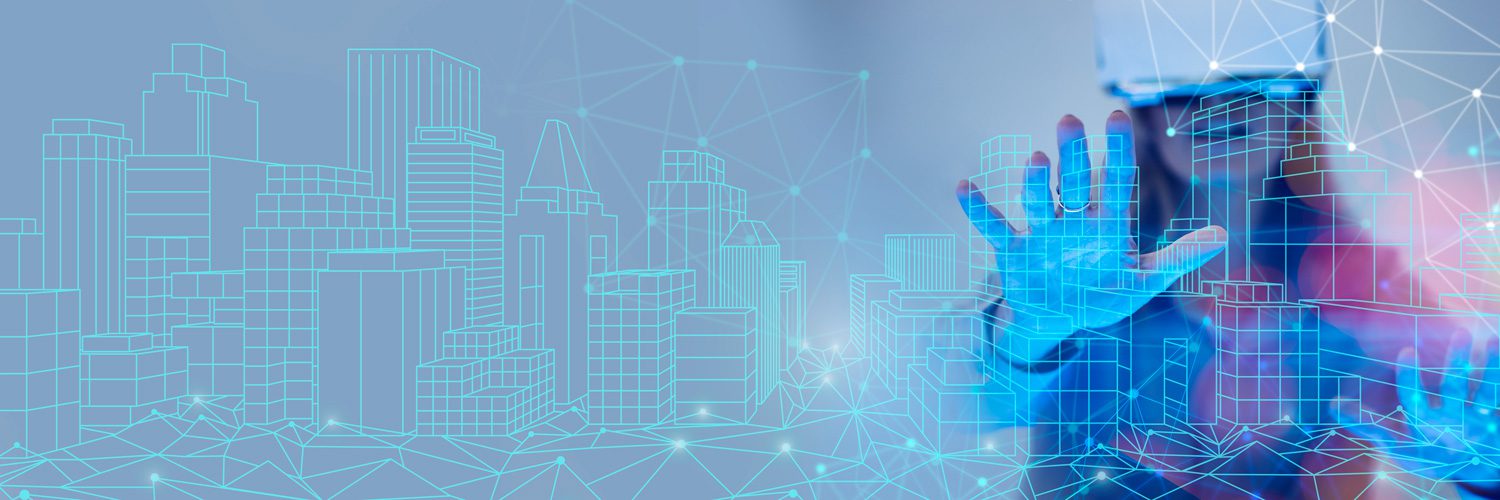In today’s world, investing in real estate is no longer linked to a physical space or a tangible asset. In June 2021, the Republic Realm fund acquired a plot of virtual land in the Decentraland metaverse for US$900,000.
Technical innovations are having a revolutionary effect on the way real estate is perceived, the way it’s owned, and broadening investment opportunities. These innovations include the popularisation of blockchain technology, the rise of cryptocurrencies, and the appearance of non-physical assets, such as non-fungible tokens (NFTs).
This historic sale in Decentraland is just an example of the opportunities contained in the metaverse. Companies investing in a virtual reproduction of the day-to-day experience; a digital world in which you can interact with spaces, objects, people and carry out activities.
The Washington Post and Forbes have both recently echoed the possibilities that metaverses offer for investors. Earlier this summer, Roundhill announced the launch of an exchange-traded fund (ETF) dubbed the ‘META ETF’, composed of securities engaged in metaverse-related activities.
Being based on NFTs and essentially a representation of blockchain technology, these metaverses are characterised by their decentralised operation – meaning they’re averse to risks such as disappearance or destruction motivated by individual or collective action. The disappearance of a service or platform wouldn’t mean the disappearance of the property: a plot in a metaverse can be transferred to another person or metaverse.
Earlier this summer, Roundhill announced the launch of an exchange-traded fund (ETF) dubbed the ‘META ETF’, composed of securities engaged in metaverse-related activities.
Because of this tokenisation, the process of investing and managing the property is much simpler, more efficient, and automatic. For example, the application of smart contracts would allow verification of the property without the need to depend on third parties to prove it, or could even establish clauses of automatic compliance when certain conditions occur.
All these are predictions and possibilities usually cited by those who defend the possibilities of NFT applied to any field, not just real estate. But the real estate possibilities are enhanced by the fact that the uses of these properties are, in essence, very similar to what we’d give them in physical life. We could build a residential building on virtual land or we could build a shopping centre for users to visit. The owner (or owners – one of the characteristics of this tech is that it enables easy property division) of that shopping centre could rent the different premises within it to third parties. And, we users could go shopping at that centre.
This may sound futuristic, but it’s already happening in Decentraland; there’s a commercial district baptised as Metajuku (in honour of the Tokyo fashion district of Harajuku), where two tenants are already installed: Dressx and Tribute Brand, two fashion brands that sell NFT garments.
All these predictions are linked to the visions of tech-giants becoming a reality. ARK’s Big Ideas for 2021 stated that “Society interacts daily with virtual worlds which today are in their infancy. According to our research, revenue from virtual worlds will compound 17 per cent annually from roughly US$180 billion today to US$390 billion by 2025.” In a internal event, Mark Zuckerberg made special mention of the possibilities of metaverses.
Technological development allows dreams to materialise in virtual universes. If it were real, it would be a reality with no implications on governance or international taxation, among other aspects.
Investment in real estate, linked to an asset, is also determined by the specific legislative framework of the market in which it is located. But in what market or country are we operating if we invest in digital real estate? What obligations would we have? Would we be taxed? Where? Which jurisdiction would prevail in the event of litigation? Governments and regulatory bodies are beginning to consider these questions.
In March 2021, the European Union proposed changes to its Regulation of the European Parliament and of the Council on crypto-asset markets and amending Directive (EU 2019/1937), popularly known as the MiCA Regulation (Markets in Crypto-Assets). Although a step in the direction of legislating the technological universe, elements such as non-fungible tokens have been omitted.

So, although there are opportunities on the horizon for businesses to expand into virtual worlds, there’s still a long way to go before ‘normal’ protections are available.
These latest innovations are revolutionising the way we use technology in our daily basis, and, the real estate sector is included in the revolution.
As a leading provider of accounting, tax, payroll and SPV administration to some of the largest real estate managers in the world, we’re experts when it comes to unravelling complexities. We enable international investment across more than 50 jurisdictions globally and are technology driven, using our best-in-class technology platform to make life easier for our clients.
Local Knowledge – International Coverage
Founded in 1979, Auxadi is a family-owned business working for multinational corporations, private equity funds and real estate funds. It’s the leading firm in international accounting, tax compliance and payroll services management connecting Europe and the Americas with the rest of the world, offering services in 50 countries. Its client list includes many of the top 100 PERE companies. Headquartered in Madrid, with offices in US and further 22 international subsidiaries, Auxadi serves 1,500+ SPVs across 50 jurisdictions.
All information contained in this publication is up to date on 2021. This content has been prepared for general guidance on matters of interest only, and does not constitute professional advice. You should not act upon the information contained in this chart without obtaining specific professional advice. No representation or warranty (express or implied) is given as to the accuracy or completeness of the information contained in this content, and, to the extent permitted by law, AUXADI does not accept or assume any liability, responsibility or duty of care for any consequences of you or anyone else acting, or refraining to act, in reliance on the information contained in this chart or for any decision based on it.




